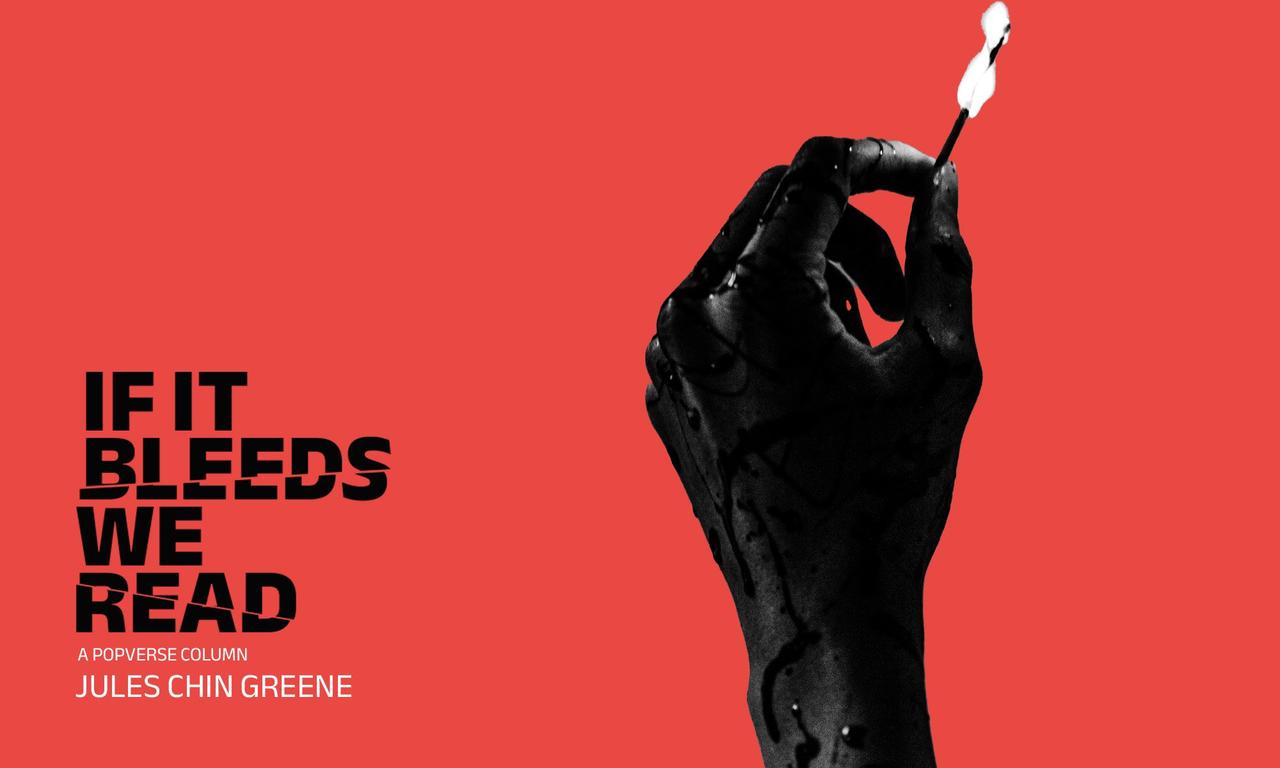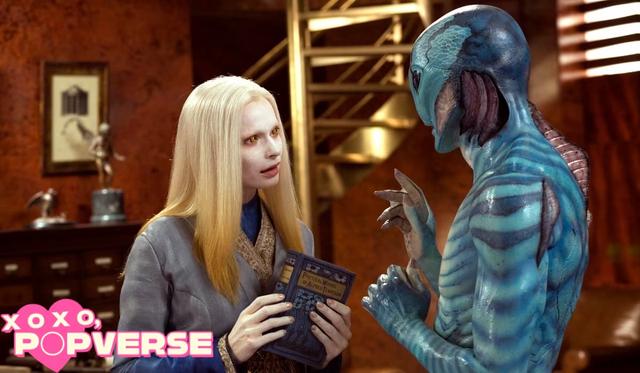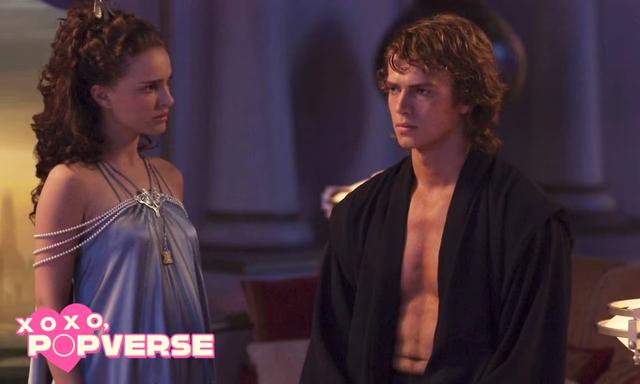If you click on a link and make a purchase we may receive a small commission. Read our editorial policy.
Ring Shout by P. Djèlí Clark is a satisfying takedown of H.P. Lovecraft and his racism, and my soul has been healed by it [If It Bleeds, We Read]
In the thrilling novella Ring Shout, writer P. Djèlí Clark rewrites H.P. Lovecraft's place within American history and the horror literary canon

Popverse's top stories
- DC Comics sends Absolute Batman, Absolute Wonder Woman, and the entire Absolute Universe back to press for a massive March rollout
- Creel World Seattle: Stranger Things' Jamie Campbell Bower is coming to ECCC 2026!
- Members only: Ask Ming-Na Wen, Critical Role, Gail Simone, Karl Urban, Chris Claremont, Denys Cowan, and more your questions as part of ECCC x Popverse member exclusive!
If you've been reading this column for a minute or two, you probably have figured out by now that I love horror. And as much as I love horror, there's a particular wrinkle to being a horror fan of color in America at least, which is the legacy of H.P. Lovecraft. In college, I remember sitting in a room where a group of white people were enthusiastically singing Lovecraft's praises. I made eye contact with the other person of color there and had a moment of unspoken "we're really going to have to do this, aren't we?" before we both interjected with a "Well-" and noted that the dude had an irrational fear of people like us.
Look, I get that Lovecraft is immensely influential within the genre, and that folks of all backgrounds love his stories. I'm not going to come after you with a katana if you love reading Lovecraft's fiction and retain an awareness for how his visceral hatred for people of color, that was unusual even in the times he lived in, shines through in his work. I'm not some intern working for Blade the Vampire Hunter. As long as you're cool with people like me living and thriving alongside everyone else, then I've got no quarrel with you.
But for me, I have disdain for Lovecraft because I'm mixed-race, and something he had a lot of anxiety about was miscegenation. To be honest, it's pretty infuriating to be sitting here, just your friendly neighborhood mixed-race queer, and encounter stories where the author makes you out to be some demon with powers beyond comprehension. I'm literally just some guy with eczema trying to make it through the day, Howard. The only time I will pose a threat to you is if you use your phone in the movie theater.
Ring Shout's reference to H.P. Lovecraft is an unexpected twist

All of this is to say, I'm way more interested in works by horror writers of color who either subvert Lovecraftian tropes or "talk back" to his place within the literary canon. One of those books is P. Djèlí Clark's novella, Ring Shout or Hunting Ku Kluxes in the End Times. There are a million things that I could say about the force of nature that is Ring Shout. Set in 1922 Macon, Georgia, Ring Shout follows a Black monster hunter named Maryse who defends her community from the otherworldly demons who take the form of Ku Klux Klan members. Aiding Maryse in her fight against the Ku Kluxes is a sword she can summon that's powered by the energy of old African gods. Yeah, it's a weapon that makes Thor's Mjölnir look like a toy. There's a wonderful detail at the end of Ring Shout that is a satisfying pommel strike to Lovecraft.
At the end of the story, Maryse reunites with three haints who advise her that there is more hunting to be done. One of them, Auntie Ondine, says, "A new threat rises. You must go on a quest! To an isle within the Province of Rhodes!" "You mean Providence, Rhode Island?" Maryse asks. In response, Auntie Ondine says, "The enemy has their eyes fixed on there - on a man they believe can help them further infiltrate your world, open doors to worse than their Grand Cyclops. They're inculcating him with their vileness and he appears a willing vessel. He has been named their Dark Prince and-"
At this point, the first time I read Ring Shout, I bolted upright. "LOVECRAFT?!?!" I screamed, alarming my neighbor's dogs. I almost couldn't believe it. Enshrined at the end of a glorious, cathartic, Southern gothic horror story was an acknowledgement of Lovecraft's poisonous views. Instead of ignoring Lovecraft's place in the horror canon, despite his virulent racism, P. Djèlí Clark wove it into the existing narrative and historical ecosystem of Ring Shout.
P. Djèlí Clark's Ring Shout provides space for American horror fans of color to reflect on the history of their favorite genre

In effect, Clark gives Lovecraft the treatment that he deserves. Regardless of how you feel about Lovecraft's writing, there is something immensely troubling about how far his racist views permeated his personal life. You don't need to tell me twice just how awfully racist white people could be in early 20th century America, but Lovecraft embraced white supremacy like it was an Olympic sport. He might as well have been a "willing vessel" for the primordial entities that Maryse spends her time fighting in Ring Shout.
In Ring Shout, Clark reduces Lovecraft's position in the historical timeline and literary canon to the point where he doesn't even have a name. As such, Clark wrests back the reins of the forces that have defined American horror over the past century. Ring Shout, for all of its fantastical monster hunting, is grounded within the historical fact that D.W. Griffith's film, The Birth of a Nation, reignited the Ku Klux Klan in the United States, resulting in acts of domestic terrorism like the 1921 massacre of Black people in Tulsa's Greenwood district. American horror doesn't start with H.P. Lovecraft. Instead, he was a willing participant in turning Black and other people of color's lives into waking nightmares. Lovecraft isn't the progenitor of American horror so much as he's one of its demons.
As such, Ring Shout invites us horror fans of color to consider how and why we've chosen to make a home for ourselves within this genre. After all, as Lovecraft's track record can show, our experiences in this country have been shaped by white people's imagined fears about us. As a teenager, I saw myself in the Creature from Mary Shelley's Frankenstein because his appearance, his existence, his humanity, was frightening to other people. As I've grown older, I realized that my love of horror blossomed out of how intimately familiar I was with fear. For people of color, the world is a scary place. But with horror, we get to examine and unlock the mechanics of that scariness on our own terms. Through characters like Maryse in Ring Shout, we can even fight back.
Just like yourself, the Popverse staff spends a whole lot of time with our respective noses in respective books. It's why we've come up with stuff like:
- The hottest upcoming fiction
- Queer romance to add to your reading list
- A genre fiction literary column called If It Bleeds, We Read
...and a whole lot more. Join our metaphorical library, won't you? There are no late fees and you can be as loud as you want, so long as the people you live with are OK with it.
Follow Popverse for upcoming event coverage and news
Find out how we conduct our review by reading our review policy
Let Popverse be your tour guide through the wilderness of pop culture
Sign in and let us help you find your new favorite thing.
















Comments
Want to join the discussion? Please activate your account first.
Visit Reedpop ID if you need to resend the confirmation email.